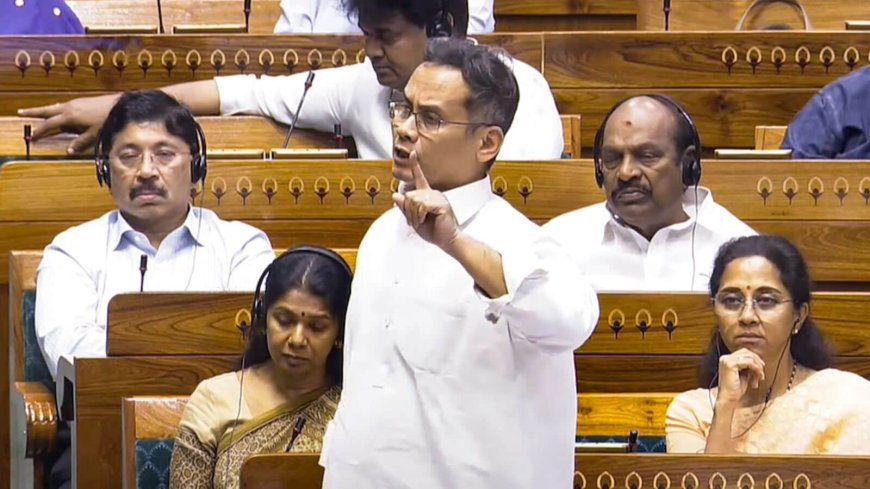‘Waqf Amendment Bill against minorities which will disturb peace in country’: Opposition in Lok Sabha
Congress Deputy Leader Gaurav Gogoi will argue against the Waqf (Amendment) Bill, 2024, which is criticized by the opposition as unconstitutional. Kiren Rijiju defends the bill, claiming it benefits the country, while Congress protests its introduction in Parliament.

‘Waqf Amendment Bill Against Minorities Which Will Disturb Peace in Country’: Opposition in Lok Sabha
News by dharmyuddh.com
Introduction
The recent discussions in the Lok Sabha surrounding the Waqf Amendment Bill have ignited a significant political controversy. Opposition leaders have voiced strong concerns that this bill poses a direct threat to minorities and could potentially disrupt the existing peace in the country. The debate has attracted national attention, highlighting varying perspectives on the legislation’s implications.
Understanding the Waqf Amendment Bill
The Waqf Amendment Bill aims to revise the administrative structure governing waqfs, which are considered charitable trusts in Islamic tradition. Proponents argue that these changes are necessary for better management and transparency within the waqf system. However, many opposition members are raising alarms over the bill's potential consequences for minority communities, fearing it could lead to undue interference in their religious affairs.
Opposition's Argument
Opposition leaders are concerned that the Waqf Amendment Bill primarily benefits a certain demographic while marginalizing minority rights. They believe it could disturb communal harmony by undermining the autonomy and rights of minorities to manage their religious properties independently. This sentiment has resonated with a significant portion of the electorate who are wary of any legislation perceived to threaten their community’s rights.
The Impact on Communal Harmony
Concerns are also raised about how the implementation of this bill could disturb longstanding communal harmony within the country. Critics argue that such legislative measures could trigger social unrest among various communities, leading to an increase in tensions. The potential for conflicts arising from mismanagement or disputes over waqf properties is a point of contention that cannot be overlooked.
Government’s Standpoint
The government, while defending the bill, claims that it seeks to enhance transparency and improve the management of waqf properties, ultimately benefiting the communities they serve. They argue that the opposition is misrepresenting the bill’s intent to stir discord for political gains. Supporters of the bill also assert that it is crucial for the overall development and welfare of these religious trusts.
Conclusion
The discourse surrounding the Waqf Amendment Bill is far more than a simple legislative debate. It reflects deeper societal issues and the urgent need for dialogue among communities to preserve peace and unity. As discussions progress, it remains vital for nearby stakeholders to consider the ramifications of the bill thoughtfully to ensure it does not infringe upon the rights of minorities. For more updates, visit dharmyuddh.com. Keywords: Waqf Amendment Bill impact on minorities, disturbance of peace in India, opposition in Lok Sabha Waqf Bill, communal harmony and Waqf, minority rights legislation India, transparency in waqf management, political debate on communal issues, effects of Waqf Bill on minorities, government response to Waqf controversy, Lok Sabha proceedings Waqf Bill.







